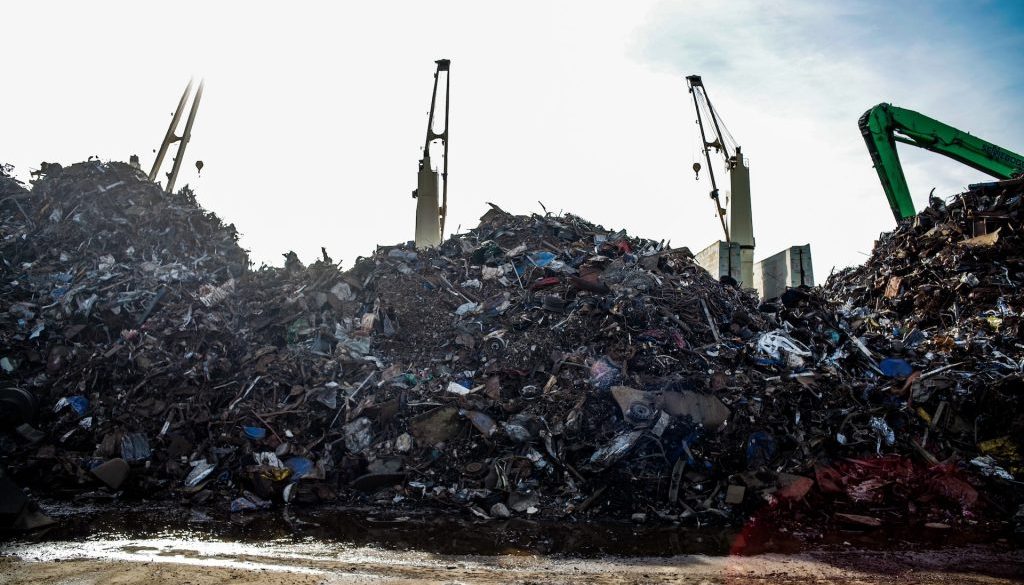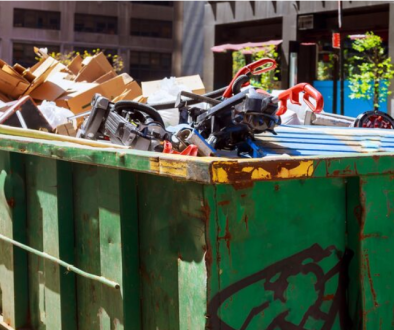In an era increasingly defined by sustainability and environmental consciousness, the management of construction waste has emerged as a topic of paramount importance. This comprehensive guide presents an in-depth exploration of recycling construction waste, a critical yet often overlooked facet of the construction process.
Construction waste accounts for a significant portion of the global waste stream, encompassing a diverse range of materials such as concrete, metals, wood, glass, and more. With the construction industry booming worldwide, the amount of waste produced is only set to increase, making effective recycling strategies crucial.
Whether you are a seasoned construction professional seeking to enhance your waste management protocols, an academic interested in the intersection of construction and sustainability, or simply a mindful citizen aiming to understand more about the environmental implications of construction waste, this guide serves as an illuminating resource.
Eco-friendly Construction: Effective Ways to Recycle Construction Waste
- Benefits of Recycling Construction Waste
Recycling and repurposing construction waste hold numerous advantages for the environment, businesses, and the construction industry as a whole:
- Resource Conservation: Recycling reduces the consumption of raw materials, conserving resources and minimising the environmental impact of extraction and transportation processes.
- Waste Reduction: Effective recycling practices lead to less waste being sent to landfill sites, lowering methane emissions produced from decomposing waste.
- Cost-Efficiency: Recycling can save money on disposal costs and lower the expenses of procuring new materials, positively impacting your project’s budget.
- Regulatory Compliance: Adhering to proper waste management and recycling practices helps ensure compliance with relevant environmental regulations and industry guidelines.
- Practical Strategies for Reducing and Recycling Construction Waste
Implementing effective waste reduction and recycling strategies requires planning and commitment. Below are several practical methods for managing construction waste:
- Develop a Waste Management Plan: At the outset of your project, create a comprehensive waste management plan outlining waste reduction, reuse, and recycling goals, including details on waste segregation, collection, and disposal processes.
- Prioritise Reuse and Repurposing: Emphasise reusing or repurposing materials wherever possible, disassembling components carefully to retain their value and considering alternative applications for materials to minimise waste.
- Segregate Waste Materials: Separate waste materials to facilitate recycling by providing separate bins or skips for different waste types, such as wood, metal, concrete, and plasterboard.
- Engage a Professional Waste Management Service: Partnering with a waste management company like Enviro Skip Hire can ensure compliance with regulations and support your recycling efforts through their expert guidance and services.
- The Role of Skip Hire Services in Managing Construction Waste
Hiring skips plays a vital part in waste management and recycling within the construction industry. Skips offer several benefits and opportunities for recycling construction rubble:
- Segregation and Organisation: Skips provide designated disposal spaces for different waste types, making it easier to separate and recycle materials on your worksite.
- Efficient Waste Disposal: Skips limit the need for multiple trips to recycling centres or landfill sites, streamlining the waste management process and saving valuable time and resources.
- Compliance Assurance: Hiring a skip service like Enviro Skip Hire ensures adherence to proper waste disposal procedures and complies with environmental regulations, minimising the risk of fines or penalties.
- Environmental Sustainability: A reliable skip hire company like Enviro Skip Hire is committed to recycling and waste management principles that promote environmental sustainability.
- Environmental Impacts of Sustainable Waste Management Practices
Adopting sustainable waste management practices in the construction industry has far-reaching positive consequences for the environment, the economy, and society:
- Lower Greenhouse Gas Emissions: Recycling reduces waste in landfills, which emit methane—a potent greenhouse gas—as waste breaks down. Decreased emissions contribute to mitigating climate change.
- Preservation of Natural Resources: By recycling construction materials, the demand for natural resources is reduced, thus preserving landscapes and biodiversity while cutting transport emissions associated with raw material extraction.
- Support for Local Recycling Industries: Recycling construction waste creates demand for recycling services and facilities, supporting the local economy and promoting green business practices.
- Encouragement of Circular Economy Principles: As the construction industry adopts recycling and waste reduction measures, more sectors may begin embracing circular economy principles, fostering a more sustainable, environmentally responsible society.
Understanding the Importance of Recycling Construction Waste
Construction projects, both big and small, invariably produce a significant amount of waste materials, so it’s only right that recycling construction waste is essential to reduce the environmental impact of the construction industry and promote sustainable practices. With that in mind, this comprehensive guide highlights the multiple benefits of recycling, and the practical strategies and support available to streamline your waste management efforts.
By engaging the services of a professional waste management company, skip hire in Hanley like Enviro Skip Hire, understanding the role of skip hire in recycling, and adopting effective waste reduction strategies, you can ensure your construction project is firmly grounded in environmentally responsible principles. Embrace recycling in your construction projects for a more sustainable and responsible future.




